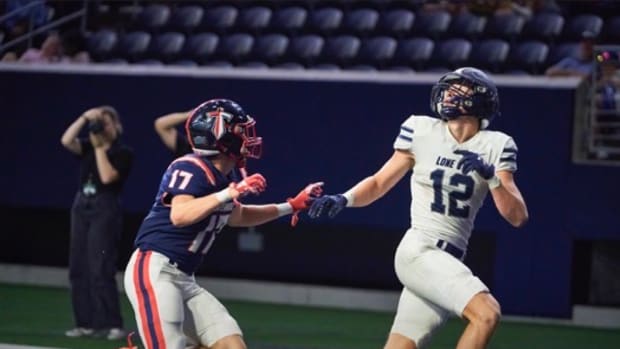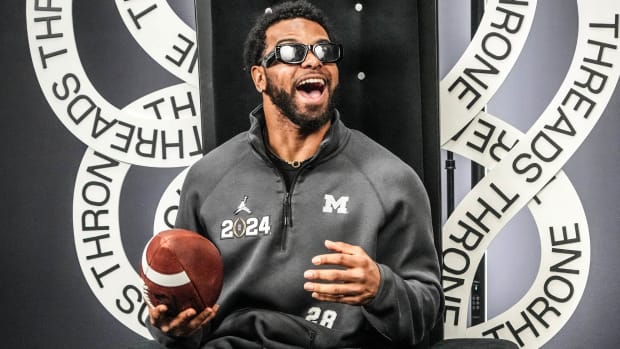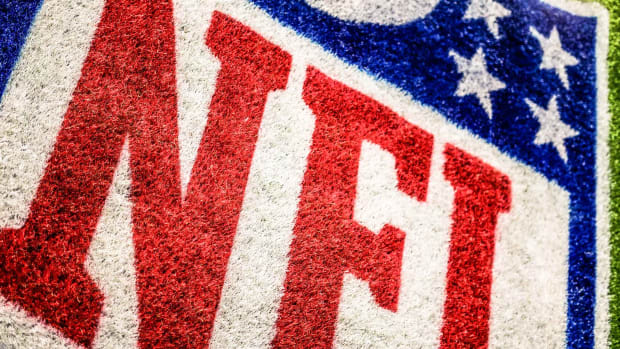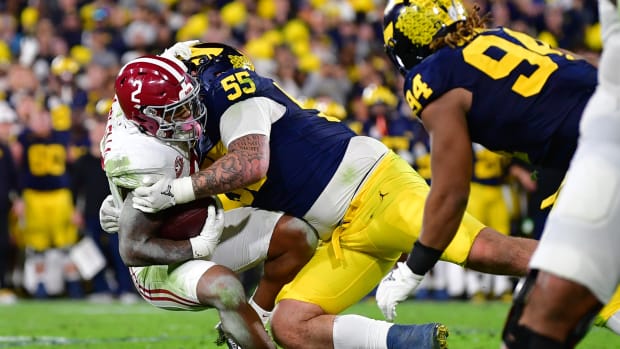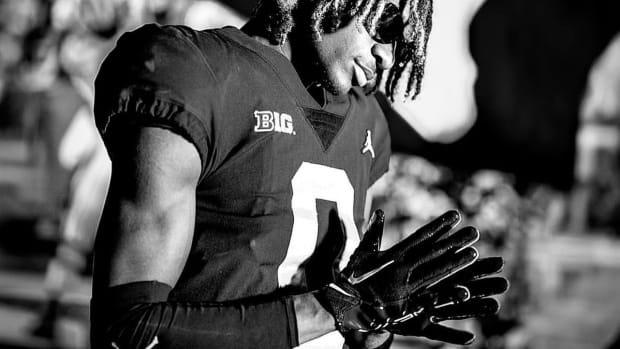Big Ten Coach, Former Wolverine, Doing His Best To Prepare Players For 2020
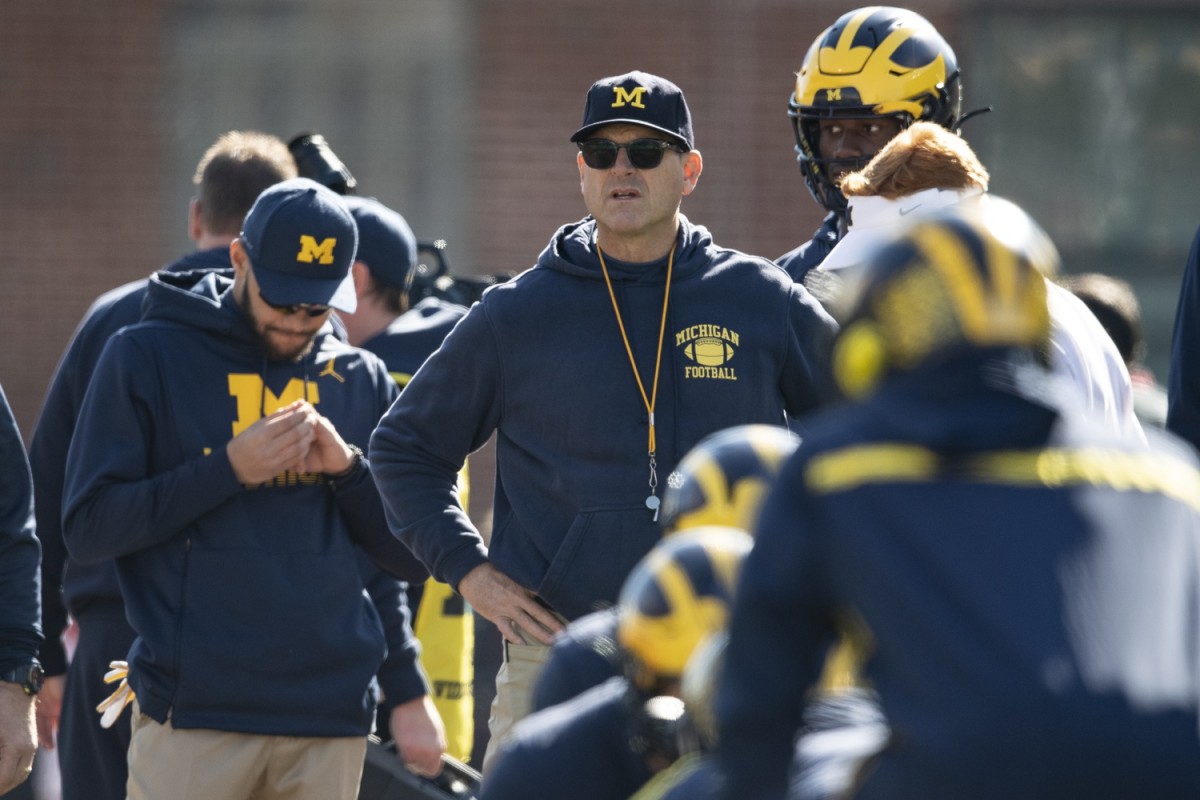
During this unique time in our country, many have been forced to change their daily lives and how they do their jobs, and for college coaches that is no different. Barred from their facilities in many states, coaches aren’t used to working from home and not being able to have physical contact with their players, so these coaches certainly have to adapt to this new normal.
Coaches are checking on their student-athletes’ safety more than ever, as former Michigan center and current Northwestern offensive line coach Kurt Anderson recently told Michael Spath on Inside the Huddle:
“What concerns me is you have guys that come from different social and economic backgrounds that might not be getting fed the same amount of meals, as maybe somebody else,” Anderson said. “So, that’s obviously a concern. So, staying in close contact with those guys, making sure that everything is ok, and that they're healthy [is extremely important].”
More than coaches, Anderson and his brethren are fathers, teachers, mentors, and the safety of their players is priority No. 1.
“I think the human in everybody wants to make sure that your players are safe. Your players are fed.”
Secondary to the well-being of their players is how do coaches get their players ready for football? It’s critical to prepare college athletes for the day the coronavirus pandemic lifts and life returns to some semblance of “normal.”
“Our plan is to do short half-hour meetings daily, as opposed to doing bigger, longer meetings. So, it's gonna be having to have everything chewed up ready to go and be efficient with your time if we are going to keep it short.”
Anderson and other college coaches have the very difficult task of trying to get their players ready for football season, despite the fact that their players are wondering if they will even get a chance to run onto the field this year.
“Let [administrators make decisions] on the health and safety of everyone, and let me do my job, which is to coach these players and help guide them,” Anderson said. “A bunch of young men are thinking, ‘Are they going to have a season or are they not going to be able to play a season?’ A lot of things that you don’t have control over.”
It’s up to Anderson and other college coaches to convince their players to continue to stay in shape and to control what they can control, not allowing them to think about the uncertainties of the season too much, so that if they do get a chance to play, their team is ready.
Anderson also said it’s important for coaches, leaders and mentors of younger athletes to use this experience as a life lesson to help their athletes learn something about unity and ultimately help our country grow closer together.
“This is obviously something that doesn’t happen very often, but happens to every generation. There is something that if you look at it in a certain way can bring you closer together, can bring our country closer together, can bring humanity closer together.” Anderson said. “So to take this time to be thankful for the things we do have, maybe do some things that can help out the less fortunate than us, but it puts things a little bit in perspective. Maybe that’s just the coach in me. I guess I got to coach somebody if I’m stuck in the house.”
Though, Anderson and other college coaches want their players to be safe, appreciative and learn something out of this experience, they still want them to prepare for the season and get closer with their teammates, so that if they do get a chance to play, they can take full advantage of it.
“It hasn’t been easy to be a college coach that’s for sure. We can all throw out a whole bunch of different scenarios, and I’m not sure how much good that actually does,” Anderson said. “Let’s get these guys and these players their minds a little bit back to football. Get their mind kind of away from what’s going on, as long as they’re safe and they're in a good place in terms of getting online and watching film together. Bringing something that brings us closer together, and it’s football.”
While the country is forced to steer clear of each other, coaches like Anderson recognize the incredible circumstances and, even, opportunity in front of them.
“I will say that part of what makes coaches unique is our ability to adapt and to change within the situation; that’s coaching.” Anderson said. “That’s in-game adjustments. So, this has kind of been life’s in-game adjustment.”

